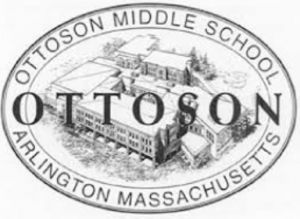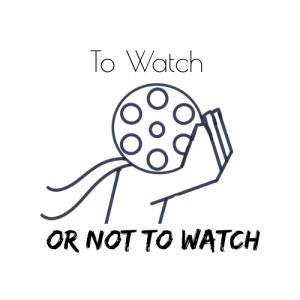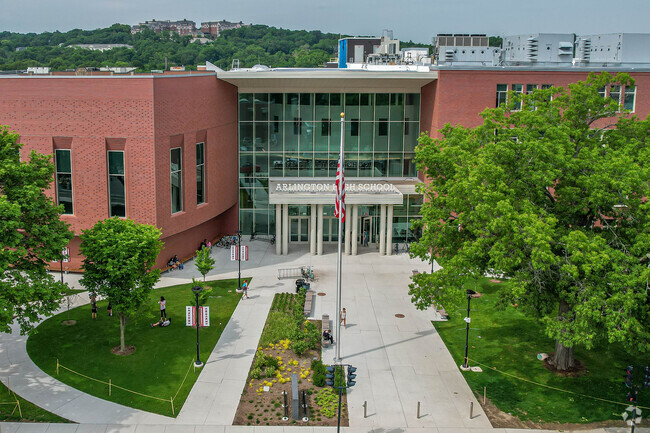The Harry Potter Books Are Better Than the Movies, Fight Me
April 7, 2021
DISCLAIMER: Neither this author nor the Ottoson Insider condone J.K Rowling’s hurtful comments regarding the transgender community. This article is based on a book series she wrote, something that we hope can be separated from her personal opinions and still enjoyed by the Harry Potter community.
*This article contains spoilers for the entirety of the Harry Potter series*
Harry Potter, the story that shaped generations. A seven book series by author J.K. Rowling that dives deep into the Wizarding world, and the war against Voldemort and Harry himself. Made into eight movies from 2001 to 2009, a point of contention among Potterheads is whether the movies are even good. Many (including myself) feel that the Harry Potter movies would be incredibly hard to follow if the viewer hadn’t read the books yet, as the movies leave out key information that a Harry Potter reader automatically fills in because they know the storyline. But someone who doesn’t have that previous knowledge might have a lesser experience watching the movies.
My personal problem with the movies is not with the actors. In my opinion, Daniel Radcliffe did a wonderful job portraying Harry, as did almost everyone else with their respective characters. I genuinely can’t think of a miscast among the whole lot. Nor does my problem lie with the soundtrack. It’s beautiful. Hedwig’s Theme, Leaving Hogwarts, and Harry’s Wondrous World are masterpieces that will live in the minds of Potterheads for the rest of their lives. No, my problem is the movie storyline and the changes that were made to it. I can’t stand when book adaptations add huge scenes or plot points that weren’t there in the source material.
In the fourth movie, Harry Potter and the Goblet of Fire, Harry gets chosen to participate in the Triwizard Tournament. The first task of the tournament is to capture a golden egg from a dragon. The dragon Harry has to face is the Hungarian Horntail, the most dangerous of the four. In the book,“Mad-Eye Moody” gives Harry the idea to play to his strengths in the competition, something that later pays off when it’s revealed that Moody is actually Barty Crouch Jr. Moody’s advice to Harry wasn’t included in the movie, and would actually have been more of an indicator of his true identity than that weird tongue-flick he does. Before the tournament, Harry and Hermione devise a plan to have Harry summon his Fire-Bolt so that he can fly over the Horntail to get the egg, as one of his strengths is Quidditch (more specifically Seeking). In the book, Harry does really well at this task, sustaining the least injuries of any of the champions and tying with Viktor Krum for first place. In the movie, they decided to make the Triwizard Tournament a little more interesting, because I guess Harry’s not allowed to win at anything that easily. The dragon chases Harry around the castle, they destroy a tower, and Harry is left to cling onto the side of a building for dear life after losing his broom. This chase sequence is a whole fiasco that didn’t need to be there. The first task of the tournament was supposed to be Harry’s easiest, lulling him into a false sense of security. The movie producers could have used that extra screen-time to add more detail to the hardest and scariest task, the third, in which Harry had to face horrors in a giant maze, such as fog that turns the world upside-down, a boggart-that for Harry turned into a dementor and the sphinx that gives Harry a riddle so that he can take a short cut. None of these horrors were in the movie-maze. Rather, all we get is the giant spider that attacks Cedric and Harry, Krum under the imperius curse (which was wrongly executed, anyway), and a wall of vines that tries to crush Cedric.
Another thing that bothers me about book-to-movie adaptations is when deleted scenes and left-out details cheapen characters and leave out important traits that make them a lot more interesting.
Ginny Weasley: Ron’s little sister and Harry’s eventual love interest and wife. Possibly the best example of character change in these movies. In the books, Ginny isn’t just the awkward, boring love interest Harry suddenly falls head-over-heels for out of the blue. Ginny’s personality starts to shine in book five, Harry Potter and the Order of the Phoenix. In book five, Ginny joins Dumbledore’s Army and ends up fighting alongside Harry, Ron, Hermione, Neville Longbottom, and Luna Lovegood in the final battle against Death Eaters in the Hall of Mysteries in the Ministry of Magic. Ginny is a confident, funny witch who’s amazing at magic, specifically hexes. She’s also an incredibly impressive Quidditch player, who can not only play her primary position of Chaser but also hold her own as substitute-Seeker for Harry. She goes on to play for the Holyhead Harpies, an all-witch professional Quidditch team, before retiring and working for the wizard newspaper The Daily Profit once she and Harry have children.
In the movies, we really don’t get to see much of Ginny at all. She appears out of nowhere in The Order of the Phoenix and is just kind of there. Then, in The Half-Blood Prince, there is no indication whatsoever that Harry and Ginny like each other (except for a creepy remark Harry makes about her skin being nice) until they kiss. After that, they don’t really make it clear if Harry and Ginny date or not, they just have quite the make-out sesh on Harry’s 17th birthday at the Burrow and then kind of stare at each other from across the room and hold hands once or twice. In the movies, the producers write Ginny off as just a love interest for Harry-oh and she’s also Ron’s sister. Either way, she doesn’t get to be her own character. Love stories, especially ones like this where the characters end up married with children, are only compelling if both characters are well developed. Otherwise, they just feel kind of cheap when one character has no personality. Also, I can confidently say that book-Ginny is, if not my absolute favorite, one of my most favorite characters. She has funny quips, lots of action, and is overall super awesome, I wish I got to see more of that Ginny in these movies.
The movies reduce Ron’s character to a food-loving, funny, sidekick. The producers gave Hermione some of Ron’s more memorable and revealing lines and dissolved some of Ron’s best character traits. Book-Ron is so loyal you’d have thought he was a Hufflepuff. A line of Ron’s that was given to Hermione in the movie version of Harry Potter and the Prisoner of Azkaban is a perfect example of this. Sirius Black is trying to kill Peter Pettigrew while Harry, Ron, and Hermione think he’s trying to kill Harry. Sirius points his wand in their general direction (Ron has his “rat Scabbers” in his pocket) and Ron gets up and stands on his broken leg to protect Harry, declaring, “If you want to kill Harry you’ll have to kill us too!” In the book, this quote was said by Ron rather than Hermione. Ron frequently stands up for his two best friends when Snape makes a particularly snide comment or insults them. In one example, Snape is asking a question and Hermione knows the answer. Snape pretends not to hear her so she answers out loud. Snape rounds on her and says, “that is the second time you’ve spoken out of turn Miss Granger. Are you incapable of restraining yourself or do you pride yourself on being an insufferable know-it-all?” this upsets Hermione quite a lot, and Ron is quick to jump to her defense. “You asked us a question and she knows the answer! Why ask if you don’t want to be told?” Clearly, Ron is a loyal character in the books, but the movie fails to emphasize this important part of his personality.
The movies also tried to hint at a possible romantic relationship between Harry and Hermione. They dance, she sneaks into the champions’ tent before the first task in the Goblet of Fire, etc. This is all wrong. Book-Harry even says himself, he loves Hermione like a sister, not in a romantic way. Harry loving Hermione was a concern of Ron’s, another thing about him that is left out of the movies. Ron’s always had an inferiority complex, and he’s the youngest boy of six older brothers, many of which were prefects and head boys. Even after escaping his brothers’ shadows at home, he becomes the best friend of Harry Potter, the boy who lived, the chosen one. Ron’s feelings of jealousy and inferiority are the real reason he and Harry have their big falling out in The Goblet of Fire. Ron knows deep down that Harry would never have put his own name in the Goblet of Fire, but he’s angry because, as he said, “of course Harry Potter is going to be in the Tri-wizard Tournament even though he’s three years too young! Because he’s Harry Potter!” the movies don’t make it clear that Ron is angry because he’s jealous of the attention Harry’s getting, even though Harry tries to make it clear to Ron that the attention he’s getting is mostly negative. Ron is frequently scared that Hermione prefers Harry over himself, and that’s what the locket Horcrux shows him when he’s trying to destroy it, a very touching moment between Harry and Ron, that is again, sadly left out of the movies.
Ron also struggles with self-doubt, especially when it comes to quidditch. He feels incredibly nervous to the point of throwing up before his first game. Ron’s performance on the quidditch field declines even more when the Slytherins launch into the song “Weasley is Our King,” insulting his family’s lack of money and his Quidditch skills. Ron’s self-doubt is shown even more when Harry pretends to give Ron a dose of Felix Felicis-or Lucky Potion before a game. Hermione is disgusted that Harry would cheat, but Ron immediately feels happy and confident. Ron performs incredibly in that game, all because he thought he was lucky. In Harry’s fifth year when he and Fred and George Weasley are suspended from Quidditch for the year by Delores Umbridge, the Gryffindor Quidditch team pays the price. Ron frequently asks Captain Angelina Johnson if he can resign, and is almost always in a state of self-doubt. Even Harry agrees that it would be kinder to just let Ron resign. Ron was a very skilled Keeper, but he had no self-confidence. This inner turmoil of Ron’s is completely absent from the movies. We do see Hermione confund Cormac McClagon at Ron’s try-outs, and Harry pretending to use Felix Felicis, but out of context so they just seem like Hermione was being nice and Harry was helping to ease Ron’s nerves, there’s no show of his self-doubt.
Something that many fans (including myself) appreciate about book-Harry is his sass, sense of humor, and sarcasm. In the movies, there is very little display of this humor, with most of the jokes being thrust onto Ron, squishing him even more into the “funny side-kick” trope. One of Harry’s best retorts is to Snape during his fifth-year occlumency lessons. Snape demands that Harry call him “sir” or “professor.” Harry is having a lesson, and he answers a question of Snape’s with just a “yes.” Snape corrects Harry “yes sir,” to which Harry retorts with “There’s no need to call me sir, Professor.” Harry also frequently makes snide remarks to Draco Malfoy, giving himself and the reader a sense of satisfaction to combat Malfoy’s constant bullying and mean comments towards Harry. Choosing to leave these displays of Harry’s more funny quips out of the movies paints Harry as much weaker and more self-possessed than he actually is. Whenever Malfoy goes for Harry, his parents, or his friends in the movies, Harry’s frequent reaction is just to lunge at Draco, prompting Ron to hold him back.
The movies changed two couples’ first-kisses: Harry and Ginny’s, and Ron and Hermione’s. Both of the movie kiss scenes are not the same as in the books. I am here to make my case as to why Harry and Ginny’s first kiss in the books is better than their movie kiss. Firstly, let’s set the scene. The book and movie kisses happen in completely different places. In the book, Harry and Ginny’s kiss was in the Gryfindor common room after Ginny and the rest of the Gryffindor quidditch team (Harry had detention so he couldn’t play) won the Quidditch Cup. During this scene, Harry jumps into Ginny’s arms and kisses her in front of the entirety of Gryffindor house, throwing caution and his doubts about Ron’s reaction to the wind. It’s quite a relieving moment for Harry and the reader, not only when Ginny kisses him back, but when Ron gives Harry an “if you must” nod, letting him know that Harry dating Ginny was okay with him, even if he found it kind of gross.
The movie kiss happens in the room of requirement when Ginny is helping Harry hide the Half-Blood Prince’s potions book. This is a scene that is definitely not in the book. Rather, in the source material, Harry hides the Half-Blood Prince’s book in a panic after Snape sees him use Sectumsempra on Malfoy and suspectes Harry might have his old book. Harry and Ginny’s book kiss is just one of the many examples of re-written scenes that make the books so much better. The movie version is kind of awkward and confusing, while the book version not only gives the reader a little thrill, it also shows Harry’s daring in that moment and puts into words the joy he’s experiencing.
The seven Harry Potter books add a level of plot depth, character development, and detail that the movies could never cover, simply because of length. I firmly believe that if each movie was six hours long, they would be fantastic, and again, the actors, soundtrack, and filming are not the problem. I don’t necessarily blame the Harry Potter films or the people who worked on them, the books are simply too complex and detail-filled to be truly captured in their entire glory by eight movies. If you love the movies, I’m begging you to read the books. They will deepen your understanding and love for this story and the wizarding world. Additionally, if you are wondering whether to read the books or watch the movies first, please consider reading the books first. They contain much more detail and allow you to live in your own imagination before your perception of the Harry Potter characters is influenced by the actors who play them. The books also let you see what the author originally intended for this story and these characters without alterations (whether you believe them necessary or not).








Ayah • Apr 24, 2023 at 2:48 pm
great disclaimer, thanks for pointing that out!
Samantha R. • Apr 9, 2021 at 11:45 am
I completely agree with everything here! Great analysis!!